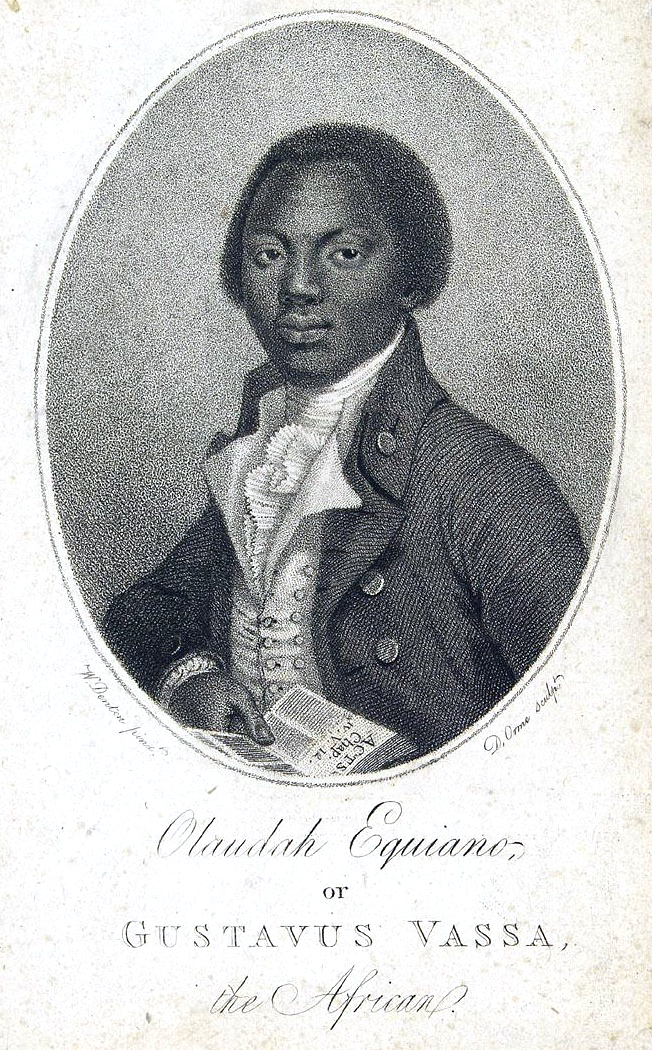|
Demographics Of Alabama
The 2010 census estimated Alabama's population at 4,802,740, an increase of 332,636 or 7.5% since 2000. This includes a natural increase of 87,818 (375,808 births minus 287,990 deaths) and a net migration of 73,178 people into the state. Immigration from outside the United States resulted in a net increase of 30,537 and migration within the country produced a net increase of 42,641. As of 2000, 96.7% of Alabama residents age 5 and older speak English at home and 2.2% speak Spanish. German speakers make up only 0.4% of the population, French/ French Creole at 0.3%, and Chinese at 0.1%. In 2006 Alabama had a larger percentage of tobacco smokers than the national average, with 23% of adults smoking. The religious affiliations of adult people in Alabama are as follows: Christian – 86%, Non-Christian Faiths – 1%, Other faiths – 1%, Unaffiliated (religious "nones") – 12% As of 2000, 25.3% of residents of the state were under 18, 6.7% were under 5, and 13.0% were over 65. ... [...More Info...] [...Related Items...] OR: [Wikipedia] [Google] [Baidu] |
2010 United States Census
The United States census of 2010 was the twenty-third United States national census. National Census Day, the reference day used for the census, was April 1, 2010. The census was taken via mail-in citizen self-reporting, with enumerators serving to spot-check randomly selected neighborhoods and communities. As part of a drive to increase the count's accuracy, 635,000 temporary enumerators were hired. The population of the United States was counted as 308,745,538, a 9.7% increase from the 2000 census. This was the first census in which all states recorded a population of over half a million people as well as the first in which all 100 largest cities recorded populations of over 200,000. Introduction As required by the United States Constitution, the U.S. census has been conducted every 10 years since 1790. The 2000 U.S. census was the previous census completed. Participation in the U.S. census is required by law of persons living in the United States in Title 13 of the United ... [...More Info...] [...Related Items...] OR: [Wikipedia] [Google] [Baidu] |
Asian (U
{{disambiguation ...
Asian may refer to: * Items from or related to the continent of Asia: ** Asian people, people in or descending from Asia ** Asian culture, the culture of the people from Asia ** Asian cuisine, food based on the style of food of the people from Asia ** Asian (cat), a cat breed similar to the Burmese but in a range of different coat colors and patterns * Asii (also Asiani), a historic Central Asian ethnic group mentioned in Roman-era writings * Asian option, a type of option contract in finance * Asyan, a village in Iran See also * * * East Asia * South Asia * Southeast Asia * Asiatic (other) Asiatic refers to something related to Asia. Asiatic may also refer to: * Asiatic style, a term in ancient stylistic criticism associated with Greek writers of Asia Minor * In the context of Ancient Egypt, beyond the borders of Egypt and the cont ... [...More Info...] [...Related Items...] OR: [Wikipedia] [Google] [Baidu] |
Hispanic And Latino Americans
Hispanic and Latino Americans ( es, Estadounidenses hispanos y latinos; pt, Estadunidenses hispânicos e latinos) are Americans of Spanish and/or Latin American ancestry. More broadly, these demographics include all Americans who identify as Hispanic or Latino regardless of ancestry.Mark Hugo Lopez, Jens Manuel Krogstad and Jeffrey S. PasselWho Is Hispanic? Pew Research Center (November 11, 2019). As of 2020, the Census Bureau estimated that there were almost 65.3 million Hispanics and Latinos living in the United States and its territories (which include Puerto Rico). "Origin" can be viewed as the ancestry, nationality group, lineage or country of birth of the person or the person's parents or ancestors before their arrival in the United States of America. People who identify as Hispanic or Latino may be of any race. As one of the only two specifically designated categories of ethnicity in the United States (the other being "Not Hispanic or Latino"), Hispanics and Latinos f ... [...More Info...] [...Related Items...] OR: [Wikipedia] [Google] [Baidu] |
Multiracial Americans
Multiracial Americans are Americans who have mixed ancestry of two or more races. The term may also include Americans of mixed race ancestry who self-identify with just one group culturally and socially (cf. the one-drop rule). In the 2010 United States census, approximately 9 million individuals or 3.2% of the population, self-identified as multiracial. There is evidence that an accounting by genetic ancestry would produce a higher number. Historical reasons are said to have created a racial caste such as the European-American suppression of Native Americans, often led people to identify or be classified by only one ethnicity, generally that of the culture in which they were raised.Gates, Henry Louis, Jr. ''Faces of America: How 12 Extraordinary Americans Reclaimed Their Pasts'' (New York University Press, 2010) Prior to the mid-20th century, many people hid their multiracial heritage because of racial discrimination against minorities. While many Americans may be considered mult ... [...More Info...] [...Related Items...] OR: [Wikipedia] [Google] [Baidu] |
Race And Ethnicity In The United States Census
Race and ethnicity in the United States census, defined by the federal Office of Management and Budget (OMB) and the United States Census Bureau, are the self-identified categories of race or races and ethnicity chosen by residents, with which they most closely identify, and indicate whether they are of Hispanic or Latino origin (the only categories for ethnicity). The racial categories represent a social-political construct for the race or races that respondents consider themselves to be and, "generally reflect a social definition of race recognized in this country." OMB defines the concept of race as outlined for the U.S. census as not "scientific or anthropological" and takes into account "social and cultural characteristics as well as ancestry", using "appropriate scientific methodologies" that are not "primarily biological or genetic in reference." The race categories include both racial and national-origin groups. Race and ethnicity are considered separate and distin ... [...More Info...] [...Related Items...] OR: [Wikipedia] [Google] [Baidu] |
Pacific Islander Americans
Pacific Islander Americans (also known as Oceanian Americans) are Americans who are of Pacific Islander ancestry (or are descendants of the indigenous peoples of Oceania or of Austronesian descent). For its purposes, the United States census also counts Indigenous Australians as part of this group. Pacific Islander Americans make up 0.5% of the U.S. population including those with partial Pacific Islander ancestry, enumerating about 1.4 million people. The largest ethnic subgroups of Pacific Islander Americans are Native Hawaiians, Samoans, Chamorros, Fijians, Marshalleses, Tongans, and Tahitians. American Samoa, Guam, and the Northern Mariana Islands are insular areas (U.S. territories), while Hawaii is a state. History First stage: Hawaiian migration (18th-19th centuries) Migration from Oceania to the United States began in the last decade of the 18th century, but the first migrants to arrive in the country were natives of Hawaii. People from other Oceanian backgro ... [...More Info...] [...Related Items...] OR: [Wikipedia] [Google] [Baidu] |
Asian Americans
Asian Americans are Americans of Asian ancestry (including naturalized Americans who are immigrants from specific regions in Asia and descendants of such immigrants). Although this term had historically been used for all the indigenous peoples of the continent of Asia, the usage of the term "Asian" by the United States Census Bureau only includes people with origins or ancestry from the Far East, Southeast Asia, and the Indian subcontinent and excludes people with ethnic origins in certain parts of Asia, including West Asia who are now categorized as Middle Eastern Americans. The "Asian" census category includes people who indicate their race(s) on the census as "Asian" or reported entries such as "Chinese, Indian, Filipino, Vietnamese, Indonesian, Korean, Japanese, Pakistani, Malaysian, and Other Asian". In 2020, Americans who identified as Asian alone (19,886,049) or in combination with other races (4,114,949) made up 7.2% of the U.S. population. Chinese, Indian, and Filip ... [...More Info...] [...Related Items...] OR: [Wikipedia] [Google] [Baidu] |
Alaska Native
Alaska Natives (also known as Alaskan Natives, Native Alaskans, Indigenous Alaskans, Aboriginal Alaskans or First Alaskans) are the indigenous peoples of Alaska and include Iñupiat, Yupik, Aleut, Eyak, Tlingit, Haida, Tsimshian, and a number of Northern Athabaskan cultures. They are often defined by their language groups. Many Alaska Natives are enrolled in federally recognized Alaska Native tribal entities, who in turn belong to 13 Alaska Native Regional Corporations, who administer land and financial claims. Ancestors of Native Alaskans or Alaska Natives migrated into the area thousands of years ago, in at least two different waves. Some are descendants of the third wave of migration, in which people settled across the northern part of North America. They never migrated to southern areas. For this reason, genetic studies show they are not closely related to native peoples in South America. Alaska Natives came from Asia. Anthropologists have stated that their journey from ... [...More Info...] [...Related Items...] OR: [Wikipedia] [Google] [Baidu] |
Native Americans In The United States
Native Americans, also known as American Indians, First Americans, Indigenous Americans, and other terms, are the Indigenous peoples of the mainland United States ( Indigenous peoples of Hawaii, Alaska and territories of the United States are generally known by other terms). There are 574 federally recognized tribes living within the US, about half of which are associated with Indian reservations. As defined by the United States Census, "Native Americans" are Indigenous tribes that are originally from the contiguous United States, along with Alaska Natives. Indigenous peoples of the United States who are not listed as American Indian or Alaska Native include Native Hawaiians, Samoan Americans, and the Chamorro people. The US Census groups these peoples as " Native Hawaiian and other Pacific Islanders". European colonization of the Americas, which began in 1492, resulted in a precipitous decline in Native American population because of new diseases, wars, ethni ... [...More Info...] [...Related Items...] OR: [Wikipedia] [Google] [Baidu] |
Non-Hispanic Or Latino African Americans
African Americans (also referred to as Black Americans and Afro-Americans) are an ethnic group consisting of Americans with partial or total ancestry from sub-Saharan Africa. The term "African American" generally denotes descendants of enslaved Africans who are from the United States. While some Black immigrants or their children may also come to identify as African-American, the majority of first generation immigrants do not, preferring to identify with their nation of origin. African Americans constitute the second largest racial group in the U.S. after White Americans, as well as the third largest ethnic group after Hispanic and Latino Americans. Most African Americans are descendants of enslaved people within the boundaries of the present United States. On average, African Americans are of West/Central African with some European descent; some also have Native American and other ancestry. According to U.S. Census Bureau data, African immigrants generally do not self-ide ... [...More Info...] [...Related Items...] OR: [Wikipedia] [Google] [Baidu] |
Non-Hispanic Or Latino Whites
Non-Hispanic whites or Non-Latino whites are Americans who are classified as "white", and are not of Hispanic (also known as "Latino") heritage. The United States Census Bureau defines ''white'' to include European Americans, Middle Eastern Americans, and North African Americans. Americans of European ancestry represent ethnic groups and more than half of the white population are German, Irish, Scottish, English , Italian , French and Polish Americans. In the United States, this population was first derived from English (and, to a lesser degree, French) settlement of the America, as well as settlement by other Europeans such as the Germans and Dutch that began in the 17th century (see History of the United States). Continued growth since the early 19th century is attributed to sustained very high birth rates alongside relatively low death rates among settlers and natives alike as well as periodically massive immigration from European countries, especially Germany, Ireland, ... [...More Info...] [...Related Items...] OR: [Wikipedia] [Google] [Baidu] |
Latino (U
Latino or Latinos most often refers to: * Latino (demonym), a term used in the United States for people with cultural ties to Latin America * Hispanic and Latino Americans in the United States * The people or cultures of Latin America; ** Latin Americans Latino and Latinos may also refer to: Language and linguistics * ''il Latino, la lingua Latina''; in English known as Latin * ''Latino sine flexione'', a constructed language * The native name of the Mozarabic language * A historical name for the Judeo-Italian languages Media and entertainment Music * ''Latino'' (Sebastian Santa Maria album) *''Latino'', album by Milos Karadaglic *"Latino", winning song from Spain in the OTI Festival, 1981 Other media * ''Latino'' (film), from 1985 * ''Latinos'' (newspaper series) People Given name * Latino Galasso, Italian rower * Latino Latini, Italian scholar and humanist of the Renaissance * Latino Malabranca Orsini, Italian cardinal * Latino Orsini, Italian cardinal Other names * ... [...More Info...] [...Related Items...] OR: [Wikipedia] [Google] [Baidu] |





.png)

